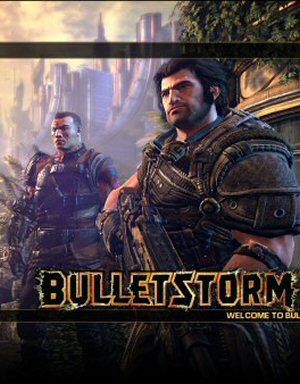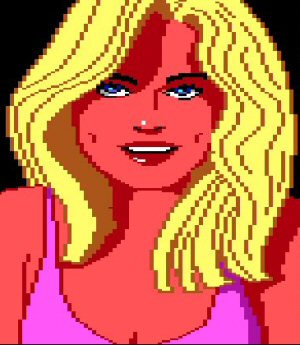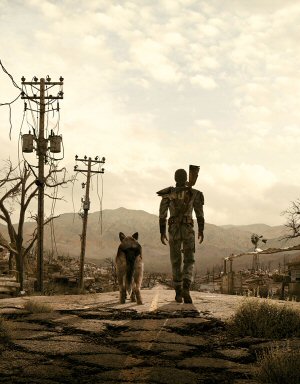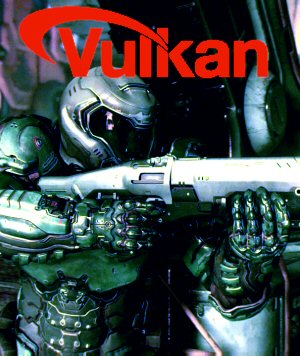Hosts: Paul, Shamus. Episode edited by Issac.
Diecast338
Link (YouTube) |
Continue reading ⟩⟩ “Diecast #338: Midnight Mailbag”

Link (YouTube) |
Continue reading ⟩⟩ “Diecast #338: Midnight Mailbag”

I gave Satisfactory my #3 spot in 2019. There were things I loved about the game, and there were things I didn’t. At the time, it was easy to dismiss the things I didn’t like as simple growing pains. The game was in early access and it’s natural to assume that a good game is going to keep getting better as it grows. The things you love will become more polished, the stuff that bugs you will get fixed, and so by the end you’ll have the best version of the game.
But as Satisfactory has grown, I find myself becoming more annoyed and less interested in it. The stuff that bugged me has become more bothersome, and the stuff I liked seems to have gotten lost in the noise. I come back to the game after every major update, and these revival sessions get shorter every time.

To get where I’m coming from: I loved Factorio. According to Steam, I’ve clocked almost 2,000 hours in that game. Now, the defensive fan-boy response here is:
“Satisfactory is not Factorio! If you want to play Factorio, then go play Factorio and don’t criticize this perfect jewel of a game!”
In order to discuss a game we need to start somewhere. I’m not saying that Satisfactory needs to copy Factorio, I’m just explaining what initially drew me to the game.
I love solving emergent logistical problems. Every game ends up being its own puzzle, and no matter how well I do there’s always that nagging suspicion that I could do it all even better next time. It’s this constant process of visualization, experimentation, and implementation as I work on various optimization problems. I’m always looking to make it a little more efficient, get it working just a little faster, or pack the whole thing into an even smaller space.
The idea of having this style of puzzle-solving in a first-person world sounds almost too good to be true. The world of Satisfactory looks amazing, and watching the sunrise over the vast industrial complex I’ve carved into the face of this otherwise virgin planet fills me with a deep sense of accomplishment. Maybe I’m committing some sort of ecological crime, but damn if this isn’t one fine-looking, well-maintained ecological crime.
Continue reading ⟩⟩ “Un-Satisfactory”

I never thought I’d say these words, but I’ve watched Zack Snyder’s Justice League. I expected four hours of overblown bombast. I got that, but I also got a really interesting look at storytelling. More importantly, I got to see the Mass Effect problem from the other side.
In case you missed it: Director Zack Snyder made Man of Steel, followed up by Batman v. Superman: Dawn of Justice. I was not a fan of either movie. During my write-up of Bats v. Supe, I said:
[…] it’s kind of darkly hilarious that Zack Snyder was chosen to adapt modern-day Superman for the big screen. I can’t imagine anyone more ill-suited for the material. You can see the fumbling Hollywood thinking at work behind the decision. “This Snyder guy is really good at making movies about the funnybooks. He directed [Watchmen] a few years ago, so let’s give him this one!” It’s like saying, “This guy who made Snowpiercer did a great job, so let’s give him The Polar Express. I mean, both movies have trains in the snow! He’s a natural fit!”
Anyone capable of successfully adapting Watchmen shouldn’t be allowed anywhere near Superman. The two works are opposed on a philosophical level. Superman is profoundly idealistic, and Watchmen has cynicism oozing out of its pores. Watchmen isn’t just a deconstruction of the idealized superhero myth, it’s a controlled demolition. It takes the entire premise of super-beings and says, “Actually, having nearly-indestructible godlings running around would be horrible for the world, because they would still be people and People Are Awful.”
We don’t actually know what the studio heads were thinking at Warner Brothers, but the most popular narrative was the the studios wanted to make their own version of the Marvel Cinematic Universe. But Snyder’s self-serious tone wasn’t resonating with audiences the way that Marvel movies do. Snyder took these stories about fighting crime in blue spandex and shot them as if he was adapting the Iliad. His movies have this overpowering Wagnerian vibe. You’re deafened by the angelic chorus as Snyder beats you into submission with one blunt symbol after another.
As the story goes, the studio heads didn’t know anything about art, but they did know that they were coming up short in the global dick-measuring contest against Marvel. So when Snyder suffered a family tragedy during the production of Justice League and he needed to step away from the project, the studio was only too happy to replace him with nerd culture darling of the moment Joss Whedon. Whedon is famous for his lighthearted tone and having lots of witty banter between the various leads. Under Whedon’s pen, all characters eventually turn into jokesters, dorks, or audience-insert critics. The characters become incredibly self-aware and the film starts to take on the “rollercoaster” vibe that Marvel movies are (in)famous for.
Stylistically, Whedon is basically the anti-Snyder.
Continue reading ⟩⟩ “Zack Snyder’s Justice League”

Good news for those of you who enjoy my droning voice: I’ll be on the Eh! Steve! Podcast in early April. We might talk about videogames. Or Steve. Not sure. Maybe I should get clarification.
Link (YouTube) |

Like I said before, I’m compiling my Mass Effect series into a book. I’ve finally finished the ugly brute-force work of getting the chapters into a single document and re-creating the original bold, italics, section markers, chapter headings, and so on. Yes, you’d think that such a thing would be automatic. Look, there are like three dozen ways of building an .epub from existing material and they all have some glaring fault. Maybe I’ll write about this later, but for now let’s just move on.
The final word count is 186,000 words. For rough comparison:
There are 265 footnotes. On the e-reader I’m using for testing, they work more or less like they do on the blog: you click on a footnote and the text pops up in a little box. That’s nice, but I’ll bet these footnotes are going to be a pain in the ass on in print. I turned many of them into parenthetical statements, but most of them needed to be footnotes because they were too large and complex to work as an aside in the middle of an unrelated paragraph.
I still have to add a preface and make numerous adjustments to remove useless previews / recaps to each post. It’s usually only a sentence or two like, “Next week I’m going to talk about Kai Leng’s stupid cowboy hat” and “Last week we talked about Kai Leng’s stupid cowboy hat”. On the blog these are a natural part of the format, but for someone reading straight through in book form they feel very strange. Also, explicitly referencing “weeks” is a bit goofy. The audience will probably assume I think they’re really slow readers.
I’m not sure what to do about the images. They’re an integral part of the work, but 186,000 word books don’t usually have this many pictures in them!
I discovered that the printed version can’t be printed in color with my current on-demand press. Even if it could, I’ll bet the cost would be prohibitive. Also, BioWare’s abuse of the color filter means that a lot of these screenshots will turn into a smear of blurry grey ink in black & white. Also, lots of shots are seriously underlit, which will result in a big puddle of black ink rather than a useful screenshot. I don’t know what I’m going to do about this. This book is already going to be a real doorstopper, and making it even longer for a bunch of messy unreadable images seems like a bad choice. I don’t know.
I do think I need to cut the “Everything is fine” joke from Andromeda. Images are cheap on the web, but having half a page wasted on a repeated image is probably not going to amuse someone holding the physical copy.
Yes, I could go though and manually fix the contrast in all of these muddy images, but…
Of course, none of this will be a problem for the electronic version. I’m actually really looking forward to seeing the e-book version of this thing.

You’re late. You were supposed to be reading this an hour ago. Did you sleep in? No? Is this actually MY fault because I turned my clocks ahead on Sunday? Well, what was I supposed to do? Leave my clocks alone and use them to tell time like a sane person?
Anyway, if this episode is a little short it’s probably because of time dilation due to changing the clocks, or something.
Honestly, I think people aren’t taking this daylight savings business far enough. If moving the clocks is a good idea, then let’s really make the most of it. I say we abolish March and replace it with an extra August later in the year. That will give us one less month of winter, and instead we’ll get an extra month of summer! Sure, that will really screw with everyone’s existing calendars, and things might get a little messy for people with birthdays in March / August, but think of the possibilities, Shepard!
Link (YouTube) |
Show notes: Continue reading ⟩⟩ “Diecast #336: Creepers, Butts, and Sonic Games”

Over the years, I’ve gotten quite a few requests from people for a book version of my Mass Effect Retrospective. That sounds strange to me. Haven’t you already read it? And can’t you read it anytime you like? But I don’t know. The heart wants what the heart wants.
I got an email this week suggesting that now might be a good time to do this, since Mass Effect Remastered is coming out in a couple of months. This could essentially be a “remastered” version of the retrospective. You could get it as an e-book, or you could even murder a tree for one if that’s more your style.
So what “improvements” would this new version have?
Continue reading ⟩⟩ “Good News, Everyone!”

Yes, this game is loud, crude, childish, and stupid. But it it knows what it wants to be and nails it. And that's admirable.

What is this silly word, why did some people get so irritated by it, and why did it fall out of use?

Why was this classic adventure game so funny in the 80's, and why did it stop being funny?

Yeah, this game is a classic. But the story is idiotic, incoherent, thematically confused, and patronizing.
A screencap comic that poked fun at videogames and the industry. The comic has ended, but there's plenty of archives for you to binge on.

There's a new graphics API in town. What does that mean, and why do we need it?

Here's how this site grew from short essays to novel-length quasi-analytical retrospectives.

An interesting but technically dense talk about gaming technology. I translate it for the non-coders.

Here is a 13 part series where I talk about programming games, programming languages, and programming problems.

I wanted to take the file format of a late 90s shooter and read it in modern-day Unity. This is the result.